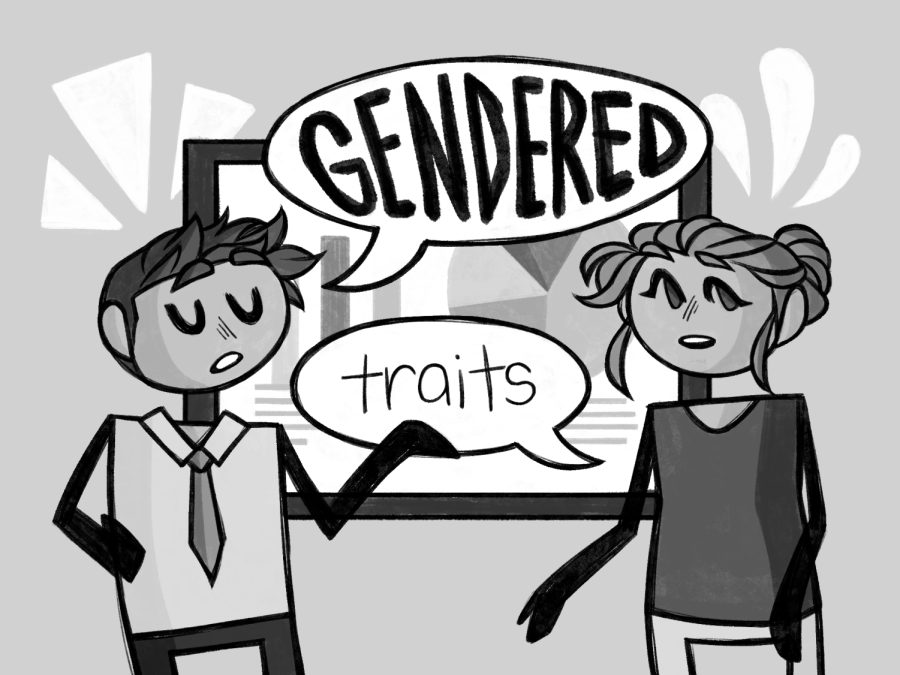OPINION: Masculinity in the workplace overshadows women
In a professional environment full of men and women, men often dominate the conversations in an office. While raising one’s hand to join a conversation or present a project, some may envision the voice behind these actions as more professional with a masculine voice and behavioral traits. Due to preconceived notions for either tone of voice or behavior, those with more masculine characteristics in areas of authority hold an advantage, permitting most individuals to assume there is lack of dominance in female positions. With all forms of professional communication, people should not assume only masculine traits define professionalism but should instead accept those of any gender.
As many individuals often collaborate in places requiring constant communication, positions in power are often dominated by certain gendered behavior traits. Active work environments with a hierarchical ladder often lean toward traditional masculine voices and behavior. These senses are influenced throughout work environments that involve communication, such as offices and classrooms.
As many bosses are predominantly male, their attitudes and mannerisms will often exacerbate the gap for women in the workplace, leaving very little room for corporate advancement. Professor Jessica Preece at Brigham Young University reported that women in male-dominated study groups are more likely to be seen as less authoritative as they speak less due to interruption and are forced to silently listen.
Various traits, such as high-pitched voices compared to low-pitch voices, often differ in a dominating and non-dominating manner. As people whose voices fail to command the attention of a room are put at a disadvantage, which disproportionately affects women, historically. Communication in this instance enables both a biological and a historical bias that preferences men in positions of power. Prioritizing tone of voice will drastically affect one’s ability to understand information from varying sources. This forces the negative habit of only comprehending information from a male trait rather than listening to one of a woman’s.
The tendency to rely on voice and tone coincidentally promotes the harmful depiction that traits of motherhood are compulsory for a woman in authority positions. Men often taunt the idea of a woman’s voice being too high in a manner that is unprofessional because of its nurturing connotation. This illustration of motherhood forces women to be constrained to motherly traits being solely responsible for nurture.
In place of critical feedback, female mannerisms are expected to provide reassurement. Rather than discouraging any form of negative indication, input from women in power should be respected, regardless of their chosen form of leadership. Dismissing self-confidence for signs of aggression in a place of work encourages an imbalance of power.
There is a vast and deep societal discrimination against women, relating back to how women are still not in charge of their own futures. Societal trends, vices and shifts in behavior are historically biased against women. In this case, workplace environments are pushing women toward motherhood and childrearing. In a time where women supposedly have the right to determine their futures, this behavior is unacceptable.
There should not be a disproportion of representation in places of communication and collaboration. Communication must be an approachable resource for every individual, despite gendered characteristics playing into the preference for male authority. People should examine their own biases by recognizing the detrimental effects of gender stereotypes and form their opinions on others based on merit not bias.


